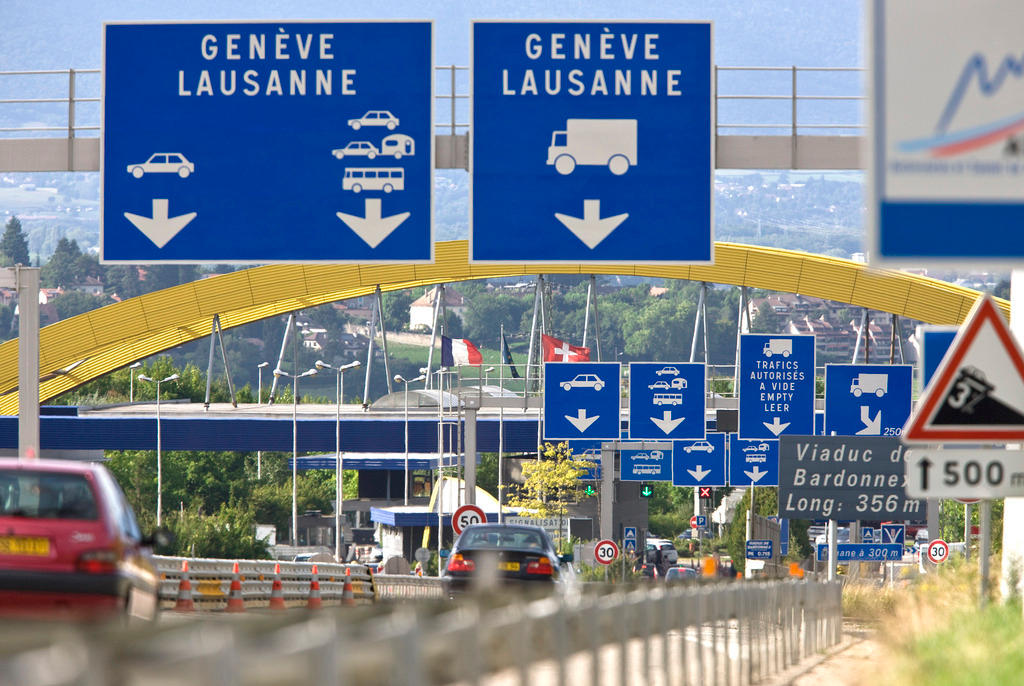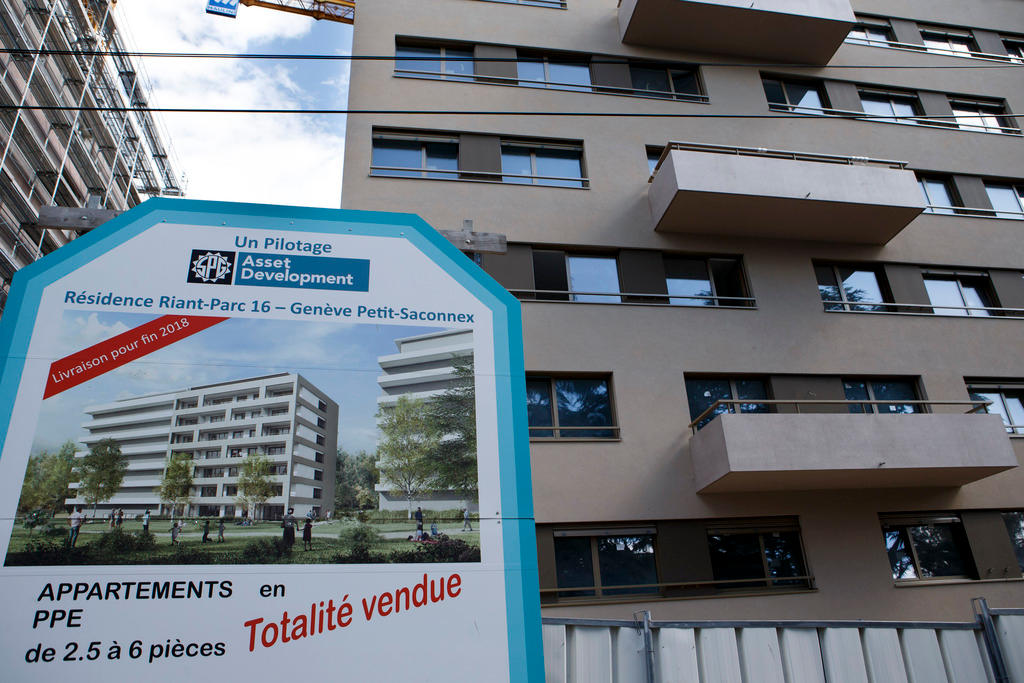
Geneva’s cross-border workers are less qualified, live further afield

A survey shows that cross-border workers in the Geneva area now travel greater distances to work and are less likely to be managers and executives than previously.
According to the 2nd Cross-border Workers’ Observatory surveyExternal link, commissioned by the European Cross-border Group and the Crédit Agricole Bank, around half of all cross-border workers from France spend at least 45 minutes driving to work, compared to one-third of people in 2015. One out of five people says it takes over one hour to get to work.
The study found that that average cross-border worker from France is a male (57%), aged 40-54 (53%), and has worked in Geneva for the past decade. One in ten has dual nationality, three-quarters own their own property, and around 57% have a gross annual salary of under CHF80,000 ($80,190).
Over the past twenty years, the total number of cross-border workers living in France and working in Geneva has risen from 26,000 to 81,226. It fell slightly in the third quarter of 2018External link (-0.4% compared to 2017).
Living further away
As accommodation is expensive and hard to find near Geneva, people have moved 10-20 kilometres (6-12 miles) further afield over the past three years.
The majority rely on their own means of transport to get to work, mainly private cars (92%). Only 17% use public transport, and only 20% are prepared to start taking the bus or train, down from 50% of those questioned three years ago. The authors of the study blame the low figures on saturated park-and-ride carparks around Geneva, and the fact that most people’s journeys begin by car.
The main reason given for working in Switzerland is the high salary (64% of those questioned), followed by the dynamic job market (32%) and proximity to home (28%).
Different professions
The study also observed a change in the professional profile of Geneva-area cross-border workers. Around 61% are now classed as workers or employees instead of managers or executives, compared to 45% workers or employees five years ago. However, two-thirds have completed post-secondary school education.
Experts say this evolution can partly be explained by the growth in Geneva’s commerce sector, which now represents 16% of cross-border jobs and has overtaken the health sector. They are followed by the construction and engineering sectors.
But observers believe some people may accept jobs that are below their level of qualification due to the lack of employment opportunities in the area. Others may have moved from France to Switzerland to keep their managerial posts, especially in the public sector.
The number of people from neighbouring countries – mainly France, Italy and Germany – who commute to work in Switzerland now stands at around 312,000. They are concentrated in north-western Switzerland near Basel, around Lake Geneva and in canton Ticino in the south.
After a long steady increase, for the first time in twenty years, the total number of cross-border commuters decreased in the third quarter of 2018 compared to the previous year. The most notable decrease was in canton Ticino (-4.1%).

More
Geneva’s property shortage continues to fuel exodus

In compliance with the JTI standards
More: SWI swissinfo.ch certified by the Journalism Trust Initiative































You can find an overview of ongoing debates with our journalists here . Please join us!
If you want to start a conversation about a topic raised in this article or want to report factual errors, email us at english@swissinfo.ch.